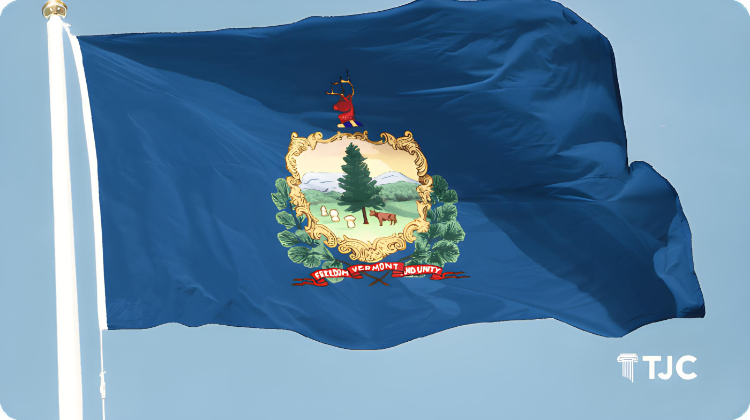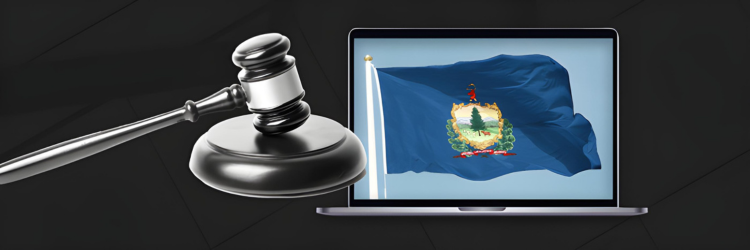In Vermont, background checks verify and discover information related to employment, criminal history, financial responsibility, and educational achievements. Employers use them to ensure candidate qualifications and workplace safety.
Landlords assess potential tenants with these checks. Specific roles may also require checking driving records and professional licenses. Here’s what you can expect when you start the background check process.
Need a Background Check?
What Is a Vermont Background Check?
A Vermont state background check is an investigation into someone’s past. Employers can review various public records about an applicant.
There are other reasons that someone can request a background check, but this is one of the most common purposes. Sometimes, a regular person may just want more details about an individual they know. Landlords might want to verify that a potential tenant isn’t dangerous before allowing occupancy.
The information disclosed includes criminal records, employment history, and educational qualifications. It can also involve checking credit reports and pre-employment drug tests. Some healthcare jobs also require pre-employment medical exams.
How Do I Get a State Background Check in Vermont?
Here’s a step-by-step guide on how to proceed with Vermont background checks:
- Identify the Type of Background Check Needed: All investigations aren’t the same. Background checks provide different types of information relevant to your needs.
- Collect Personal Information: Vermont employers, landlords, or whoever wants the check has to gather accurate information. The interested party must collect personal details. You need their full name, date of birth, Social Security number, and residence history.
- Choose a Service Provider: You can use the Vermont Crime Information Center (VCIC) or other law enforcement agencies. For criminal checks, VCIC is the primary source. Either way, be sure that the provider you choose is reputable and complies with state and federal laws.
- Submit a Request: Complete the required forms and submit your request online or by mail. For VCIC, you may need to create an account on their website. Follow the instructions to avoid delays or errors in processing.
- Pay the Fee: You’ll usually pay a fee for the provider to conduct a background check. Ensure you know the exact amount and payment methods accepted. Fees can vary depending on the type of check and who performs it.
- Receive the Report: Once processed, you will receive a report detailing the information. The turnaround time can vary depending on the type of check. Review the report to ensure all information is accurate and complete.
What Shows Up on Vermont Background Checks?
Background checks can reveal a variety of information. Here are the common types:
Credit Report Checks
Credit checks show your credit history. The report includes loans, credit card accounts, payment history, bankruptcy, and more.
Landlords and employers use them to assess fiscal responsibility. This information helps check an individual’s creditworthiness and financial stability.
Education Verification
Checking a person’s education history helps employers confirm an applicant’s academic qualifications. The review verifies the degrees obtained, the institutions attended, and the dates of attendance. This reduces the risk of fraudulent claims.
Drug Testing
Drug tests are often part of pre-employment screening. Substance tests can check for the presence of drugs or alcohol in the system.
Specialized laboratories usually carry out these exams. Many employers request drug tests to ensure a safe and drug-free workplace.
Criminal Background Checks
Criminal background checks reveal any criminal record, including arrests, convictions, and incarcerations. This is crucial for employers and landlords to ensure safety and compliance. Such checks provide insights into an individual’s past behavior and potential risks they may pose.
Employment Verification
Pre-employment background checks confirm an individual’s employment history. This includes positions held, duration of employment, and reasons for leaving previous jobs.
It helps employers verify the accuracy of a candidate’s resume. They can also assess their work experience and reliability. It is not lawful to ask about an applicant’s salary history.
Driving Record Checks
Driving record checks provide information about an individual’s driving history. This includes traffic violations, DUIs, suspensions, and accidents. Employers, especially those hiring for driving positions, use this information. They assess an applicant’s driving skills and safety record.
Civil Court Searches
Civil court searches reveal any civil litigation history, such as lawsuits, judgments, and liens. This is particularly useful for landlords and employers. It helps them understand an individual’s involvement in any legal disputes or financial issues. This ensures informed decision-making.
What Are the Background Check Laws and Regulations in Vermont?
Various Vermont background check laws regulate how background checks are conducted in the state. Here’s a breakdown of key regulations:
Vermont Fair Employment Practices Act (FEPA)
The Vermont Fair Employment Practices Act (FEPA) prohibits employment discrimination. It covers race, color, religion, national origin, sex, sexual orientation, gender identity, ancestry, place of birth, age, disability or veteran status. Employers must follow FEPA in their hiring practices, including background checks. This promotes fair treatment and equality.
Vermont Criminal Information Center (VCIC) Regulations
The VCIC regulations govern the collection, storage, and dissemination of criminal history records. They ensure records are handled securely. They are used only for legitimate purposes like employment screening or licensing. This protects privacy and prevents misuse of information.
Vermont Access to Criminal Records Act
The Vermont Access to Criminal Records Act is crucial for a fair hiring process. There are limitations as to when employers can request an applicant’s criminal history. Employers providing services to vulnerable adults can access criminal conviction records. The Department of Human Services can assist until they make a conditional job offer.
Federal Fair Credit Reporting Act (FCRA)
The FCRA is a federal law. It regulates how employers and other entities can use the information obtained from a credit check. The Fair Credit Reporting Act says informed consent is crucial before conducting a background check. Individuals have the right to dispute any inaccurate information found in their reports.
Ban the Box Law (Vermont H.261)
The Ban the Box law (Vermont H.261) strictly prohibits asking about criminal history on the initial application. This law aims to reduce employment barriers for individuals with past criminal involvement. It ensures they are considered based on qualifications before disclosing their criminal activity.
Child Protection Registry Check Requirements
Vermont mandates checks against the Child Protection Registry for individuals working with children. The registry ensures that people with a history of child abuse or neglect cannot get certain jobs. It enhances the safety and well-being of children in various settings.
Adult Abuse Registry Check Requirements
Working with vulnerable adults necessitates a check against the Adult Abuse Registry. It prevents individuals with a history of abuse or neglect from obtaining caregiving roles. Conducting this type of check assures the protection and safety of elderly or disabled adults.
Vermont Tenant Screening Laws
Vermont tenant screening laws guide how landlords use background checks in rental applications. Landlords must provide notice to applicants and get their consent before conducting checks. Tenant laws keep people safe and protect applicants’ rights and privacy.
Local Vermont Fair Hiring Laws
Vermont has several local fair hiring laws designed to ensure equal employment opportunities. Protected characteristics mentioned above cannot disqualify someone from a job. For instance, in Burlington, employers must follow extra rules to facilitate equal consideration.
Vermont County Resources
Accessing public records at the county level can provide detailed information. You can use this information to do a background check. Each county may have different resources available:
- Chittenden County: Court records, property records, and more
- Washington County: Civil lawsuits, criminal record checks, and other public documents.
- Windsor County: Public information, including marriage and divorce records
County resources are essential for obtaining specific information. Some information might not be available at the state level.
How Far Back Does a Background Check Go in Vermont?
In Vermont, the lookback period for background checks can vary depending on the type of check.
- Criminal Record Check: Background checks typically go back seven years. For qualifying criminal convictions, such as serious offenses, the check can reveal older records.
- Credit Check: Usually covers the past seven to ten years of credit files
- Employment Verification: Could include the entire employment history, depending on the employer’s inquiry
How Long Does a Background Check Take in Vermont?
The turnaround time for a background check varies according to state or federal law.
- Criminal Background Checks: Criminal checks take one to three business days through VCIC. Fingerprint results take about three to five business days for electronic submissions. It takes two to four weeks by mail. Processing times can vary.
- Employment Verification: Employment checks typically take three to five business days. The wait depends on response times from past employers.
- Education Verification: Typically takes 2-3 business days.
- Credit Checks: Instant results through most credit reporting agencies.
How Much Does a Background Check in Vermont Cost?
Background check cost varies widely in Vermont:
- Criminal Background Checks: Around $30 if done through VCIC
- Credit Checks: Typically between $20-$40
- Employment Verification: Costs can range from $20 to $50, depending on the service provider
- Drug Testing: Generally costs between $30 and $60 per test
It’s important to check with the specific service provider for exact pricing.
Where to Get A Background Check in Vermont?
There are several ways to get a background check in Vermont, each catering to different needs.
Vermont Criminal Information Center (VCIC)
The VCIC is the primary source for a comprehensive overview of criminal offenses. It provides access to statewide criminal history information. Many Vermont employers and licensing agencies often use their services. You can request checks online or by mail, ensuring a reliable and official source of information.
Private Background Check Services
These online services offer quick and detailed reports, including criminal and credit checks. They are convenient and user-friendly. Private screenings are suitable for personal use or informal screenings. It’s vital to be sure that private investigators comply with Vermont statutes and federal laws.
County Resources
Accessing public records at the county level can provide detailed information specific to a region. Each county may have different resources available, such as court records, property records, and more.
County resources are essential for obtaining specific information. This information might not be available at the state level. This makes County resources valuable for thorough local checks.
Best Background Check Services in Vermont
Here are some trusted websites to run personal background checks:
- TruthFinder: Best for Comprehensive Reports
- Instant Checkmate: Best for Easy Navigation
- BeenVerified: Best for Quick Searches
TruthFinder provides extensive background reports, including criminal records, contact information, and more. Star Rating / 5.0 Instant Checkmate offers an intuitive platform for background checks. It includes criminal involvement and personal information. Star Rating / 5.0 BeenVerified provides fast and reliable background checks. Been Verified includes social media searches and public records. Star Rating / 5.0
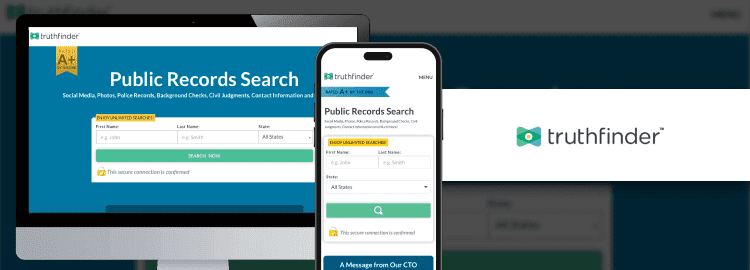
Pros
Comprehensive reports
User-friendly interface
Regular updates
Cons
Subscription-based pricing
Not FCRA compliant
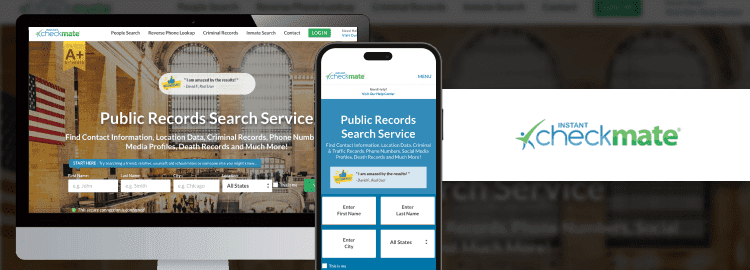
Pros
Easy to use
Detailed reports
Good customer support
Cons
Can be expensive
Subscription required
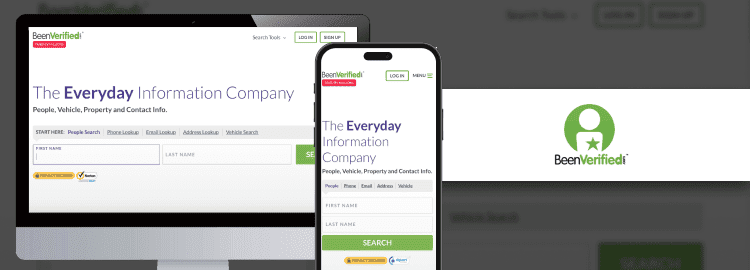
Pros
Fast results
Mobile app available
Affordable pricing
Cons
Limited in-depth information
Subscription needed
Recap On Vermont Background Check
Understanding Vermont’s background check laws facilitates informed decisions and public safety. Knowing how to access background information is important, no matter who you are. Always ensure you use reputable sources. Follow state regulations to protect yourself and others.
Disclaimer: Some background check sites are just for personal use and conducting basic people searches. Others, such as those used by potential employers, must comply with the Fair Credit Reporting Act (FCRA). This law limits the types of information you can find on other people. If you’re an employer or landlord using a background check for professional purposes, be sure to choose a site that’s FCRA compliant. Using a people search site that doesn’t comply with the FCRA to screen potential tenants, domestic workers or employees is illegal.
The information available on our website may not be 100% accurate, complete, or up to date, so do not use it as a substitute for your own due diligence, especially if you have concerns about a person’s criminal history. The services we mention do not make any representation or warranty about the accuracy of the information available through our website or about the character or integrity of the person about whom you inquire. For more information, please review each service’s Terms of Use.
Choose a state to learn more


